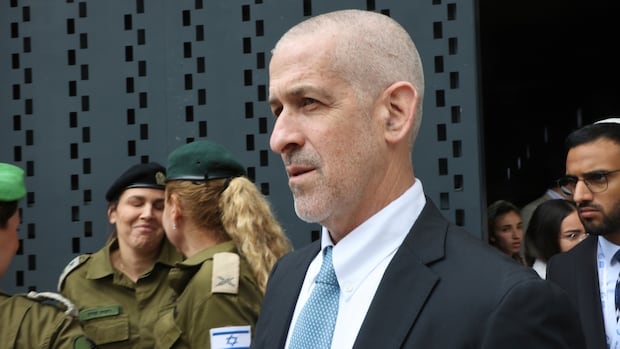The head of Israel’s domestic intelligence service said on Monday that Prime Minister Benjamin Netanyahu’s bid to fire him followed his refusal to fulfil requests that included spying on Israeli protesters and disrupting the leader’s corruption trial.
In an affidavit submitted to the Supreme Court, the head of Shin Bet, Ronen Bar, said that Netanyahu’s March move to dismiss him was not based on professional grounds but was prompted by unmet expectations of personal loyalty to the prime minister.
In response, Netanyahu’s office dismissed the affidavit, which it said was “full of lies.”
Netanyahu’s attempt to sack Bar fuelled protests in Israel and was suspended by the Supreme Court, after political watchdogs and opposition lawmakers argued the dismissal was unlawful.
Critics say that the Israeli government is undermining key state institutions and endangering the foundations of the country’s democracy. Netanyahu’s Likud party has accused Bar of acting against the prime minister and turning parts of the Shin Bet service into “a private militia of the Deep State.”
Israel’s government has backed Netanyahu, who said that he had lost confidence in Bar over the agency’s failure to prevent the Hamas-led Oct. 7, 2023 attack, a security failure that led to the country’s deadliest day.

But in the unclassified part of his affidavit, Bar argued that the quest to oust him began more than a year after the attack. He cited a series of events between November 2024 and February 2025, which he said appeared to prompt the prime minister’s moves against him.
Bar alleges Netanyahu meddling in intelligence service
Those included Shin Bet investigations into leaks of secret army documents to the media and possible links between Netanyahu aides and Qatar, and a Shin Bet inquiry into its own failings, which also pointed to the government ignoring warnings before the Oct. 7 attack and policy failures that preceded it.
Bar also said he refused to sign off on a security request aimed at preventing continuous testimony by Netanyahu at his corruption trial. Netanyahu, who denies any wrongdoing, began testifying in his long-running court case in December. His office denied that he had asked for a postponement.
Bar also cited what he described as unmet demands by Netanyahu for the intelligence service to act against anti-government protesters.
Netanyahu’s office said Bar’s affidavit confirmed that he had “failed miserably” on Oct 7. “This reason alone requires the termination of his position,” it said.
It also denied that the move to sack Bar was aimed at thwarting the so-called “Qatargate” investigation into allegations of financial ties between Qatar and Netanyahu aides.
“The dismissal was not intended to prevent the investigation. Rather, the investigation was intended to prevent the dismissal,” it said.

Bar has accepted Shin Bet’s failure in forestalling the Oct. 7 attack, and said he would step down before the end of his term.
The Supreme Court, after hearing arguments on April 8 by watchdogs and opposition lawmakers who said that Bar’s dismissal breached due process and was tainted by conflict of interest, has yet to rule on the case.
